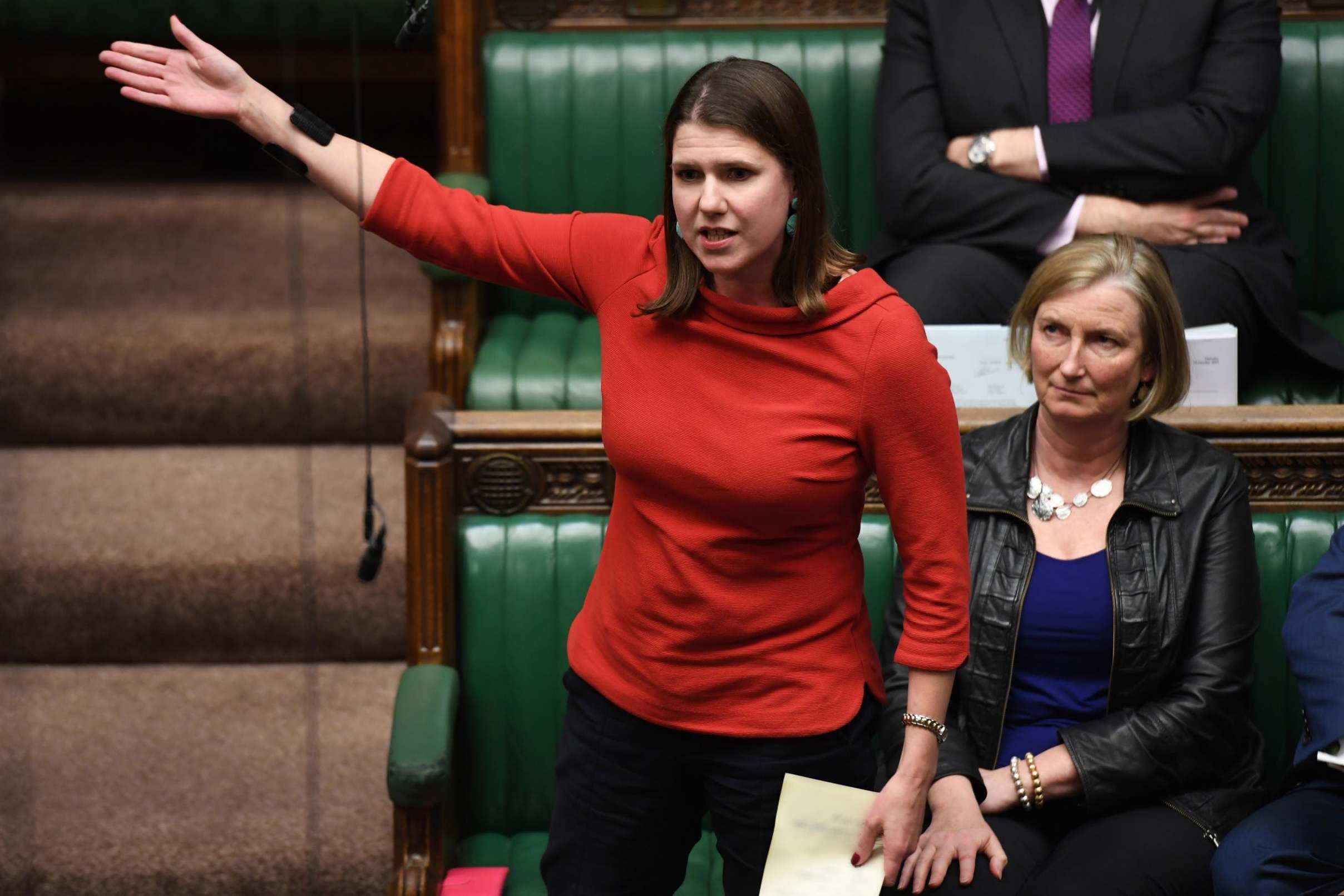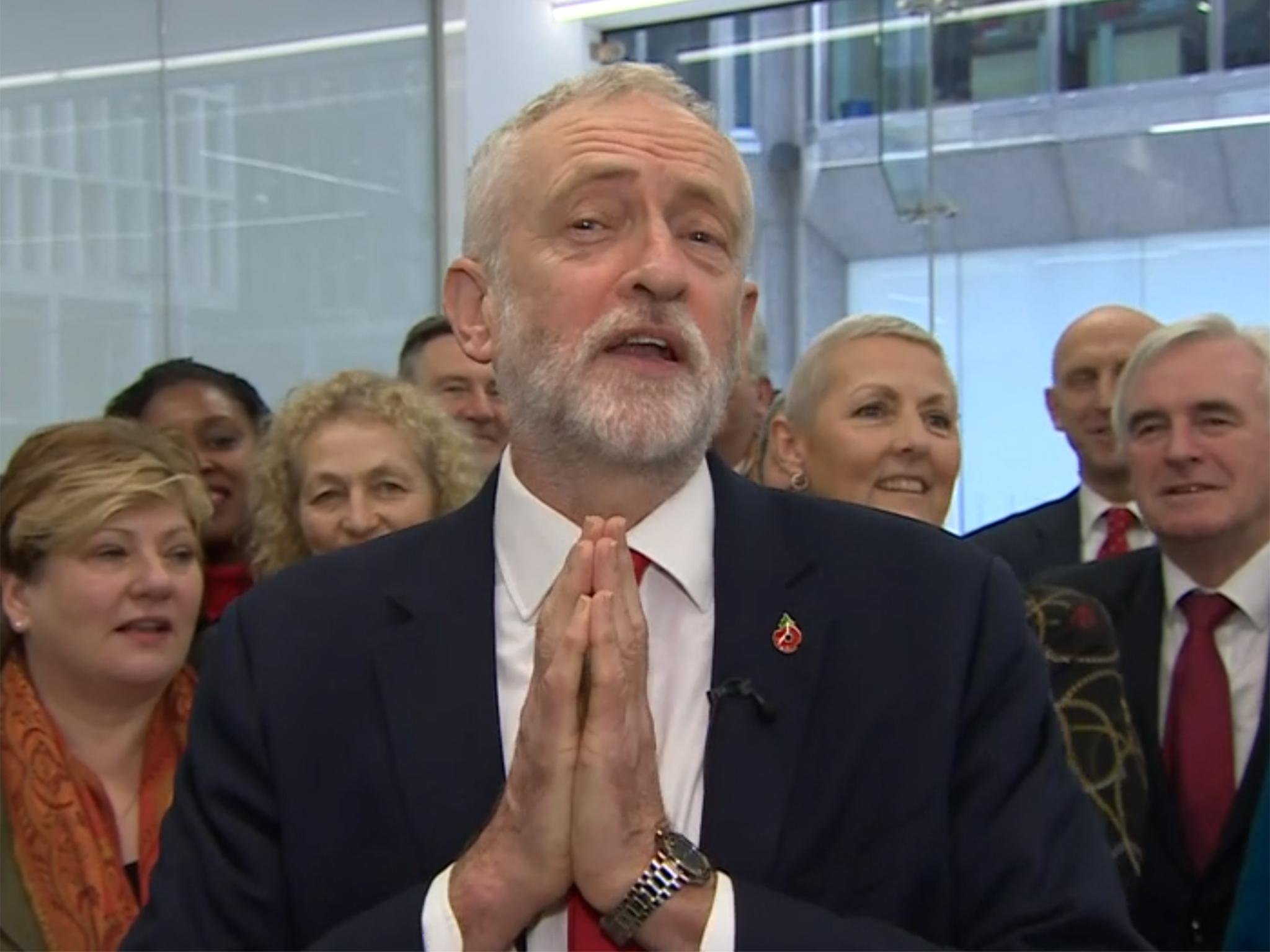General election to happen in December as MPs vote to pass bill
Vote paves the way for parliament to be dissolved on 6 November
Britain is heading towards a historic pre-Christmas general election, which could decide whether the UK leaves the European Union in 2020 or if Brexit can be stopped.
MPs voted by 438 to 20 to approve the UK’s first December ballot in almost a century, after Labour dramatically abandoned its resistance to the election sought by Boris Johnson and joined the Liberal Democrats and the Scottish National Party in backing an early vote.
Once the decision passes the House of Lords and receives royal assent, parliament will be dissolved on 6 November for a five-week campaign before the nation goes to the polls on 12 December in one of the most significant elections of modern times.
Despite recent polls showing a double-digit lead for Tories, Lib Dem leader Jo Swinson said the national vote will be “our best chance to elect a government to stop Brexit”. And leading pollster Sir John Curtice said that opposition parties did not have to win the election to be in a position to block Brexit, but simply take enough seats to deny the Tories a majority.
Mr Johnson believes the Tory surge since his election as leader in July has put him on the verge of securing the dominance of the Commons that he wants in order to deliver his Brexit deal early in 2020 and embark on the lengthy and controversial process of negotiating a new relationship with the remaining 27 EU states.
But he is vulnerable to an assault from Nigel Farage’s Brexit Party, which hopes to capitalise on Leave-backing voters’ fury at the PM’s failure to deliver his “do or die” pledge to take the UK out of the EU by Thursday this week, with or without a deal.
Supporters of a second referendum urged voters to deny him a majority in order to keep alive the prospect of a public vote on the final Brexit outcome.
But there was little sign of the emergence of a “Remain alliance”, which could see parties opposing Brexit stand candidates aside to engineer opportunities to defeat Tories.
The Liberal Democrats will fight the election on a promise to overturn the 2016 victory for Leave by revoking the UK’s Article 50 notice to quit the EU, while Labour will promise to negotiate its own Brexit deal before putting it to a public vote.
And another hung parliament could create the conditions for MPs to insist on a confirmatory referendum on Mr Johnson’s deal. This has proved impossible with the current parliamentary arithmetic.
Ms Swinson said: “This general election will decide the future of our country for generations. It is our best chance to elect a government to stop Brexit.
“The Liberal Democrats are the strongest party of Remain and will be standing on a manifesto to stop Brexit by revoking Article 50.
“This country deserves better than Boris Johnson and Jeremy Corbyn, and I am excited to take our positive, pro-European, liberal vision to the country as the Liberal Democrat candidate for prime minister.”

But Mr Corbyn made clear he will put reversing austerity – and not Brexit – at the heart of Labour’s campaign.
The election was “a once-in-a-generation chance to transform our country”, said the Labour leader.
“The choice at this election could not be clearer,” he said. “A Labour government will be on your side, while Boris Johnson’s Conservatives – who think they’re born to rule – will only look after the privileged few.
“We will now launch the most ambitious and radical campaign for real change that our country has ever seen. This is our chance to build a country for the many not the few and fit for the next generation.”
Tory aides said Mr Johnson aims to use a majority in the Commons to ratify his Brexit deal early in the new year, allowing the UK to leave the EU at 11pm on 31 January under the terms of the latest extension offered by Brussels earlier this week.
Speaking to reporters after addressing Tory MPs in Westminster, Mr Johnson said: “I think it’s time for the country to come together, get Brexit done and go forward.”
But asked if he believes he can secure a majority, he said: “It’ll be a tough election and we are going to do the best we can.”

Former cabinet minister John Whittingdale said the prime minister told the meeting his decision to go for an election “wasn’t because we were ahead in the polls or because of the horror of Corbyn but because we had no alternative: that parliament is deadlocked”.
But Sir John Curtice, of the University of Strathclyde, said that the result would probably deliver a record number of MPs from outside the two major parties, making the balance of power in the new parliament difficult to call.
With both the SNP and Lib Dems expected to improve significantly on their current tally of seats, there could be “more than 100 MPs that do not belong to either of the other two parties”, said Sir John.
And he added: “Bear in mind, this is not an election that Labour have to win to stop Brexit, but it is an election that they and the other opposition parties simply need to deny the Conservatives a majority.”
MPs voiced concern that staging the election in the potentially cold, wet and dark conditions of December for the first time since 1923 could depress turnout, particularly among students, the elderly and people with a disability. But MPs voted down a Labour bid to bring polling day forward three days to 9 December.
Pro-referendum Labour MP Peter Kyle told The Independent the election would be “a referendum in all but name” but said it was “fantasy” to believe it would resolve Brexit.
“I would say right now, at the outset, that this election is more likely to deliver a referendum, once another parliament with no overall control and with a more divisive and divided intake results,” said Mr Kyle, who voted against an election as it was “second best” to a Final Say vote on Brexit.
“Ultimately, it is the British public that will decide this, and I suspect they would rather we had got together to find a way through the Brexit challenge than asking them to do it for us.”
Plaid Cymru’s leader in Westminster, Liz Saville-Roberts, said she would like pro-Remain parties to “find a way of realising their voice” during the election, as the Welsh nationalists did when they reached an electoral agreement with the Lib Dems and Greens in the recent Brecon by-election.
“If it doesn’t come about that politicians can put aside party-political interests, then there is something more than the structure of Westminster at fault in the politics of the UK,” she told Sky News.
Richard Tice, chair of the Brexit Party, said it was still ready to join the Tories in a “Leave alliance”, which he predicted could deliver a landslide victory, but made clear the price of a pact would be a no-deal Brexit.
Steve Baker, chair of the European Research Group of Eurosceptic Tories, said a deal “won’t happen” on this basis, telling the New Statesman: “Boris will have to win without any arrangement.”
Gavin Barwell, the former chief of staff to Theresa May, said: “For two and a half years politicians have gambled that if they refuse to compromise on Brexit they might get the outcome they want.
“Now they’re all gambling on an election giving them the outcome they want. We’ll find out in a few weeks which ones have miscalculated.”
Join our commenting forum
Join thought-provoking conversations, follow other Independent readers and see their replies
Comments
Bookmark popover
Removed from bookmarks